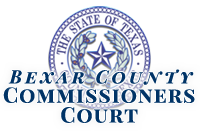Spring is near, and it’s an exciting time here in Texas. Basketball season is in full swing, SXSW and Fiesta are on their way, and there are always a constant stream of concerts and events. With so much happening, it can be easy to get caught up in trying to find the best deal or getting sold-out tickets. But unfortunately, in the process you could also find yourself getting ripped off.
Last year, BBB received nearly 400 reports on Scam Tracker related to ticket scams. One Texas victim lost $700 in 2018 trying to buy Cotton Bowl tickets through electronic transfer, and another lost $500 trying to get tickets to ACL from an individual online. This issue has also caught the attention of the Federal Trade Commission (FTC), which is holding a workshop next month to examine online event ticket sales. You can go here to learn more about the upcoming workshop.
It’s important to check that your vendor is trustworthy before deciding to purchase a ticket to the next event you want to attend. Luckily, Better Business Bureau is here with some tips to make ticket buying easy:
• Purchase from the venue. Purchase tickets from the official venue, or their secondary sales options, whenever possible.
• Consider the source. It helps to know the difference between a professional ticket broker (who is a legitimate and accredited reseller), a ticket scalper (an unregulated, unlicensed ticket seller), or a scammer selling fake tickets.
• Use trusted websites. The lock symbol next to a web address when buying tickets online indicates the site is more than likely secure. Also, use sites with ‘https’ where ‘s’ stands for secure. Online ads or emails may be unsafe sources. You can also look up ticket sellers and brokers on bbb.org to review their complaint history, customer reviews and any potential advertising concerns. You can also check if they’re a member of the National Association of Ticket Brokers.
• Know the refund policy. Terms of the transaction, as well as when the tickets will be available and where the locations of the seats are, should be clearly disclosed prior to purchase.
• Use safe payment options. Payment options like credit cards allow you to potentially get your money back in a certain time frame if something goes wrong.
• Beware of ads. Advertisement popups might appear if you search for tickets online. They may advertise low prices, but you should use your judgement and know these could be scams.
• Verify your tickets. If you’re worried about your tickets, visit the event venue and talk to customer service. They’ll know if your ticket is legitimate and show you how you can tell if a ticket is fake.
For more information on avoiding ticket scams, visit bbb.org/tickets.











